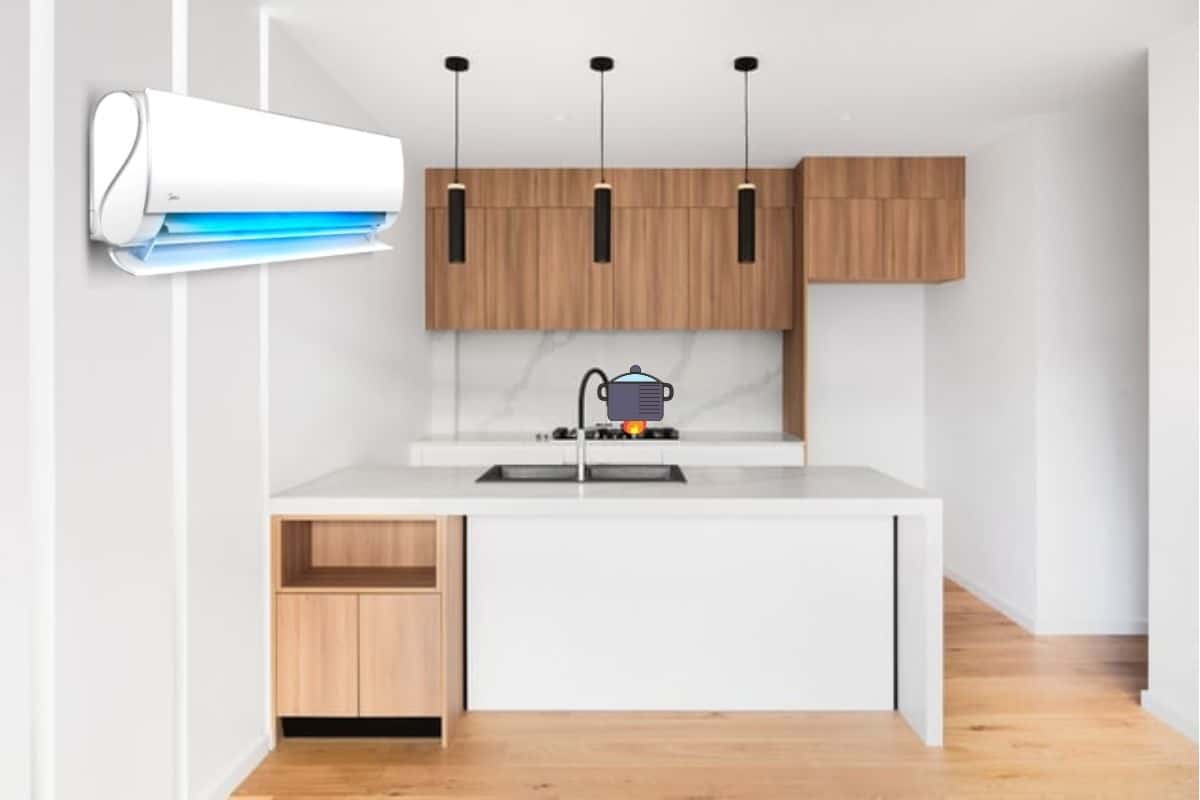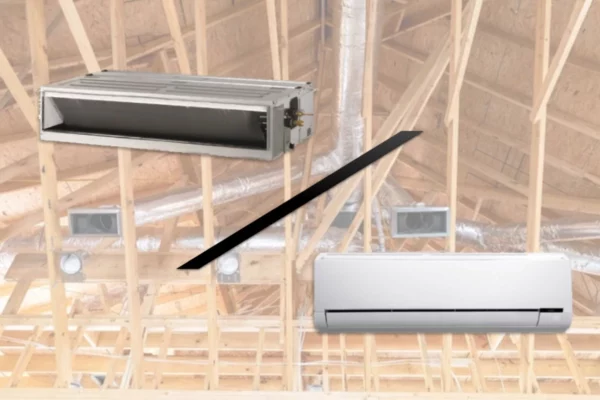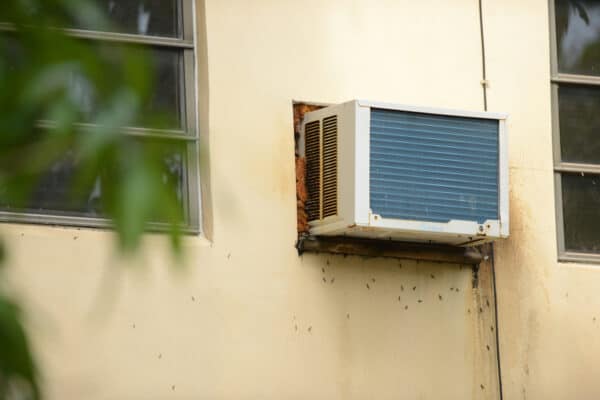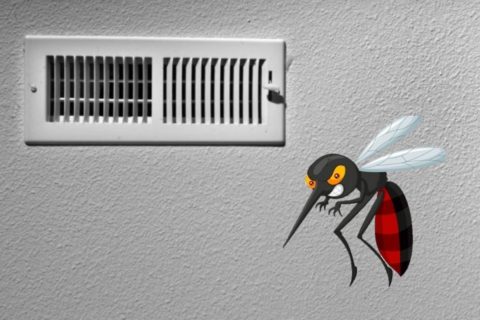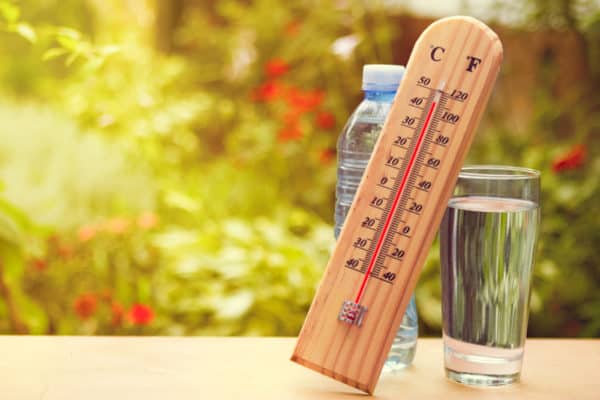Can You Put an Air Conditioner in the Kitchen?
Cooking at home is fun but staying in a hot kitchen is unbearable. Hence, can you put an air conditioner in your home kitchen?
It is ok to put an air conditioner in a home kitchen. The refrigerants used for a typical home air conditioner is not flammable under normal condition, thus it is safe to put an air conditioner in the kitchen. However, the power consumption and maintenance cost of the air conditioner in the kitchen is higher.
Although it is ok to install an air conditioner in your kitchen, there are a few things to watch out for when installing the air conditioner to prevent disturbance to your cooking.
How to Install Air Conditioner in Kitchen?
When installing an air conditioner in your kitchen, you’ll need to ensure that it can provide cooling while not disturbing your cooking. Also, a few things to bear in mind so that your air conditioner can work properly.
Air Conditioner Should Not Blow Directly onto Gas Stove
If you are using a gas stove, any wind or air movement will disturb the heating efficiency of the stove. Fire from the stove will be moving around and your soup will cook very slowly.
If you are using an electric stove, it is not advisable to blow cold air directly onto the gas stove also because one thing is the cold air is acting against the heating, another thing is the cold air will be sucked away by your kitchen hood if you have one, resulting in not much cooling and high power consumption. Not good at all.
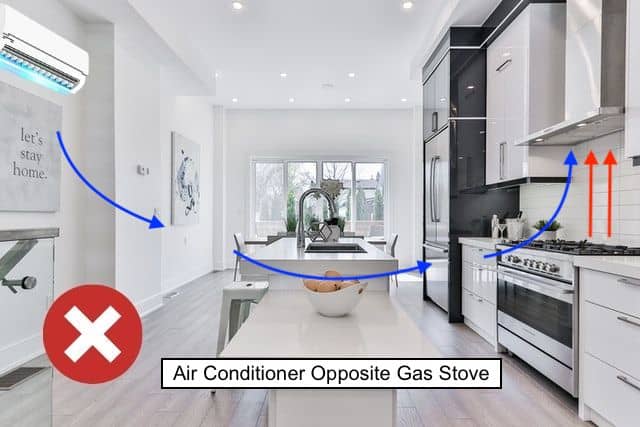
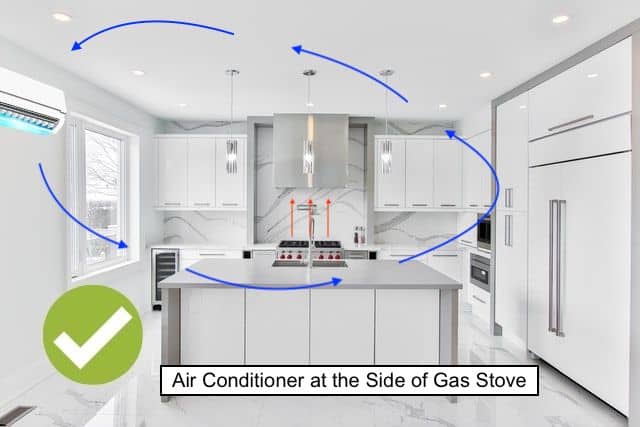
Instead, you should put your air conditioner away from the stove. Let it circulates the air behind you. Don’t worry, you’ll still feel the cooling around the kitchen plus, your kitchen hood creates a negative pressure around your stove and it draws the cold air towards you when you are cooking.
Don’t Put Air Conditioner Too Near to Gas Stove
Even if you have a kitchen hood, oily steam from your cooking will still get away from the hood and stay around your kitchen cabinet, basin and countertop. That’s why putting your air conditioner near to your stove is not a good idea.
Air conditioner naturally sucks air or return air as part of their cooling process. If you put it too near to your stove, your air conditioner will suck in more of the steam produced from your cooking. This steam is both oily and higher in temperature.
When an air conditioner draws in high-temperature air, it makes it work harder to cool down the air. In addition, more oily steam means that you’ll need to clean your air conditioner more frequently.
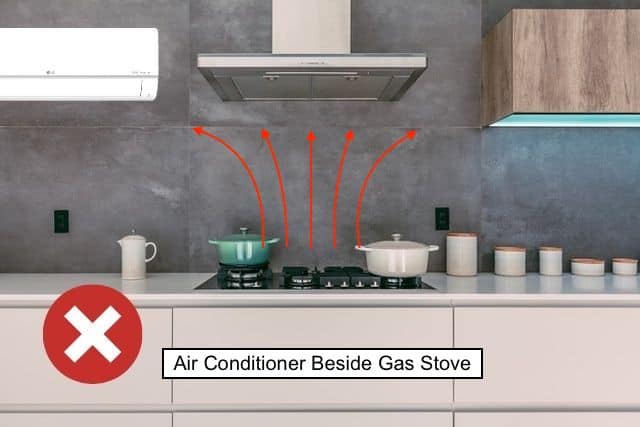
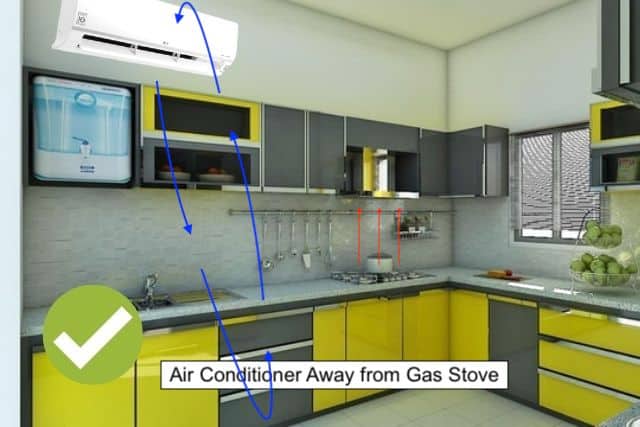
Instead, you should put your air conditioner away from your stove. Let it avoid taking in hot steam from your cooking for as much as possible. However, some amount of oily steam will still go inside your air conditioner and it is fine. Regular cleaning of your air conditioner is a must, especially in the kitchen.
Try Not to Put Hot Appliances Under the Air Conditioner
Hot appliances such as ovens, microwaves, rice cookers, pressure cookers release hot steam during cooking. It is the same principle as we discussed above. Don’t let this hot steam go inside your air conditioner for as much as possible. It will increase the power consumption of your air conditioner.
If your hot appliances are near enough, they will burn your air conditioner over time. You’ll see a burn mark on the air conditioner cover. The air conditioner is fine though, it affects the appearance of your air conditioner and you may be uncomfortable with that when it happens.
The burn mark on your air conditioner can’t be removed by simple cleaning. Usually, you’ll need to get the plastic cover replaced. Sometimes, it is hard to find one of these plastic covers.
Don’t Use Central Air Conditioner in Kitchen
If your house is using a central air conditioner, you probably have a supply air and a return air in every room. If you don’t have a return air in every room, I urge you to read my article on the problems with no return air in every room.
In case you have trouble with your central air conditioner, you may be able to find out why.
Although return air in every room is ideal, do NOT put a return air in the kitchen because the smell from your cooking will travel back to your central air conditioner and redistributes it to every corner of your house. Your house will be smoky and smelly.
Central air conditioners are not suitable for a home kitchen. Air return from the kitchen causes a house to be smoky and smelly. At the same time, without a return air, the supply air creates a positive pressure in the kitchen, resulting in the smell being forced out from the kitchen into the adjacent rooms.
Either a return air or a supply air, both also causing problems. So, don’t use a central air conditioner in the kitchen.
Will Air Conditioner Refrigerant Gas Catch Fire and Explode?
Most of the air conditioners use either R22, R410A, and R32 refrigerant gas. These refrigerants are widely used in the air conditioners for homes, office buildings, shopping malls, factories, and many more places.
My findings on the flammability of each refrigerant as mentioned above are as follow:
“R-22 is not flammable at ambient temperatures and atmospheric pressure. However, this material will become combustible when mixed with air under pressure and exposed to strong ignition sources.”
“R-410A is not flammable at ambient temperatures and atmospheric pressure. However, this material will become combustible when mixed with air under pressure and exposed to strong ignition sources.”
National Refrigerants, Inc
“An accidental release of R32 refrigerant occurs from a cylinder or piping, the velocity will be too high to ignite near the release point and the concentration will be too low where the velocity becomes low enough. So, ignition of R32 is difficult even if it is attempted intentionally.”
Air-conditioning and Refrigeration Equipment Manufacturers Association of Australia (AREMA) and the Consumer Electronics Supplier Association (CESA)
From my findings, these refrigerants are impossible to ignite in our typical kitchen. Even in the event if our air conditioner leaks gas, our kitchen environment is unable to let the refrigerant gas ignite.
By any chance if you’re an engineer, I think you wouldn’t want to miss this chance to check out the Design Engineer Starter Pack. It has a bundle of useful excel calculators, diagrams and charts that can help you strive in your HVAC career.
Use and Maintenance of Air Conditioner in Kitchen
The air conditioner in the kitchen is slightly different than the rest of the house. Here is a list of things to expect when you install an air conditioner in the kitchen:
- Electricity bill will be higher
- Maintenance cost will be higher
- Freshly cooked foods quickly become cold
Your air conditioner in the kitchen should be regularly serviced and maintained just like other air conditioners in your house. But, the kitchen air conditioner may require more frequent service due to the harsh working environment.
Do a chemical cleaning to your kitchen air conditioner every 2-3 months or when necessary to stay as efficient as possible. Use some detergents and a wet towel to wipe the plastic cover. Long exposure in the kitchen will cause oil to stick on the surface of your air conditioner.
Please don’t self-made any filter for your air conditioner. It often does more harm than good. You may potentially block the airflow, causing even higher power consumption and a lower lifespan.
Although the above may look like putting an air conditioner in the kitchen is a terrible idea, cooking in a hot environment is more than unbearable. With all the sweat and uncomfortable, sometimes it is hard to take our time to cook a good meal for our family.
Which Air Conditioner is Suitable for the Kitchen?
Most of the time, you’ll need a relatively higher cooling capacity for the kitchen due to all the heat coming out from cooking activities. Hence, I suggest you get a ductless mini-split air conditioner for the kitchen.
Following is a table of cooling capacity needed for common kitchen sizes:
| Kitchen Area | Capacity Needed |
|---|---|
| 100 sqft | 7000 BTU |
| 150 sqft | 8500 BTU |
| 200 sqft | 10000 BTU |
Although it seems controversial, the air conditioner in the kitchen should not have a high-density filter but a tough basic filter. A more expensive air conditioner usually has a PM2.5 filter, a green tea filter or other filters that trap dust better than a basic plastic mesh filter.
However, since the air conditioner is going to be placed in the kitchen, we don’t want to gather cooking oil on those filters because it’ll be very difficult to clean. Sometimes, the filter may need to be replaced.
Nevertheless, keep in mind that you should be able to claim a warranty for most of the parts but, if a part failure is due to heavy cooking oil, the manufacturer has the right to void the warranty. This applies to all manufacturers.
Alternative Ways to Cool the Kitchen
If you wish to cool your kitchen by just a little and you think an air conditioner is overkilling, there are alternative ways to cool your kitchen:
- Switch from gas stove to electric stove
- Install a standing fan or ceiling fan (not suitable for gas stove)
- Install a wall mount propeller exhaust fan
- Get a kitchen hood if you don’t have one
- Install some louvers for good natural ventilation
- Consider a roof ventilation fan for your entire house
Some of the ideas listed above such as the propeller fan and louvers are really cheap alternative solutions compared to installing an air conditioner. If you are on a tight budget, consider these ideas instead of an air conditioner.
Lastly, consider my Mini Split (eBook) if you want to know how can you use Mini Split in your house. If you still have doubt or not feeling confident enough, feel free to consult me.
Consultation Service
Ask me for HVAC advice such as brand selection, best model, benefits, features, placement, duct size, grille size, how to design, design check, verification and other HVAC related queries.
If you have anything to add (or ask) about this topic, leave a comment down below!


